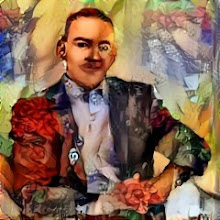(JS Note: This text was originally published 2006 in Cacophone)
You must have seen it as well. There is a strange recognizable pattern in the evolution of computable information. Almost like you could see there a conspiracy but no-one behind it. Internet, Web2, now the emerging technologies and techniques, Flickr-tags, del.icio.us, ... somehow, all the time the evolution of data structures looks like, ...well, as if it were progressing according to a hidden plan. It somehow reminds me of Richard Dawkins and Daniel C. Dennet and the meme evolution debate in 90s.
In 70's when I was a kid and studied philosophy and social sciences in Universities one way to escape the company of socialist politruks was to read Friedrich von Hayek (Nobel Prize in Economic Sciences 1974). There was one sentence that has puzzled me about 30 years now. Listen this:
"How can the combination of fragments of knowledge existing in different minds bring about results which, if they were to be brought about deliberately, would require a knowledge on the part of the directing mind which no single person can possess?"
F. A. Hayek, “Economics and Knowledge," Individualism and Economic Order, 1948
It took almost 50 years for us to be able to read that question not from the point of view of rationally acting human individuals but as it says: How can the combination of fragments of knowledge existing in different minds bring about results ...
Thanks to F.T Cloak, Dennet and Dawkins, we now can see how radical idea Hayek was actually introducing in 1948.
Recently I have started to think that in a very short time period from now to year 2011 we will see a new exciting phase in the evolution of data structures. Then unsupervised artificial intelligent systems are constantly mining the patterns of folksonomies and producing both syntactically and semantically new interesting constructions to be consumed through chat bots or instant messaging systems residing in smart-phone browser applications.
Tuesday, January 17, 2006
Subscribe to:
Post Comments (Atom)

No comments:
Post a Comment